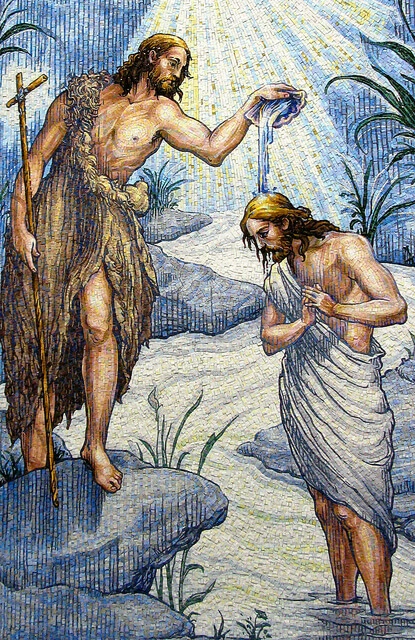305. Thus the Lord made His Human Divine.
The Human of the Lord is Divine, because it was from the esse of the Father, which was His soul, illustrated by the likeness of a father and children (n. 10269, 10372, 10823). And because it was from the Divine love which was in Him (n. 6872). Every man is such as his love is, and he is his own love (n. 6872, 10177, 10284). The Lord was the Divine love (n. 2077, 2253). The Lord made all His Human, both the internal and the external, Divine (n. 1603, 1815, 1902, 1926, 2093, 2803). Therefore He rose again as to the whole body, differently from any man (n. 1729, 2083, 5078, 10825). That the Lord's Human is Divine, is acknowledged from the omnipresence of His Human in the Holy Supper (n. 2343, 2359). And it is evident from His transfiguration before the three disciples (n. 3212). And likewise from the Word (n. 10154). And He was there called Jehovah (n. 1603, 1736, 1815, 1902, 2921, 3035, 5110, 6281, 6303, 8864, 9194, 9315). In the sense of the letter there is a distinction made between the Father and the Son, or Jehovah and the Lord, but not in the internal sense, in which the angels are (n. 3035). The Christian world does not acknowledge the Human of the Lord to be Divine, in consequence of a decree passed by a council in favor of the Pope, that he might be acknowledged as the Lord's vicar; from conversation with them in another life (n. 4738).
The Divine Human from eternity was the Divine truth in heaven, thus the Divine existere, which was afterwards made in the Lord the Divine esse, from which is the Divine existere in heaven (n. 3061, 6280, 6880, 10579). The previous state of heaven described (n. 6371-6373). The Divine was not perceptible, and therefore not capable of being received, until it passed through heaven (n. 6982, 6996, 7004). The Lord from eternity was the Divine truth in heaven (n. 2803, 3195, 3704). This is the Son of God born from eternity (n. 2628, 2798).
In heaven no other Divine is perceived but the Divine Human (n. 6475, 9303, 9356, 9571, 10067). The most ancient people could not adore the infinite esse, but the infinite existere, which is the Divine Human (n. 4687, 5321). The ancients acknowledged the Divine, because it appeared in a human form, and this was the Divine Human (n. 5110, 5663, 6846, 10737). The inhabitants of all the earths adore the Divine under a human form, and they rejoice when they hear that God actually became Man (n. 6700, 8541-8547, 9361, 10736-10738). See also Earths in Our Solar System, and in the Starry Heaven. God cannot be thought of, but in a human form, and that which is incomprehensible cannot fall into any idea (n. 9359, 9972). Man can worship what he has some idea of, but not what he has no idea of (n. 4733, 5110, 5663, 7211, 9356, 10067). Therefore the Divine is worshiped under a human form by most in the whole globe, and this is through an influx from heaven (n. 10159). All who are in good as to life, when they think of the Lord, think of a Divine Human, but not of the Human separated from the Divine (n. 2326, 4724, 4731, 4766, 8878, 9193, 9198). They in the church at this day who are in evil as to life, and they who are in faith separate from charity, think of the Human of the Lord without the Divine, and do not comprehend what the Divine Human is, the causes thereof (n. 3212, 3241, 4689, 4692, 4724, 4731, 5321, 6371, 8878, 9193, 9198).







